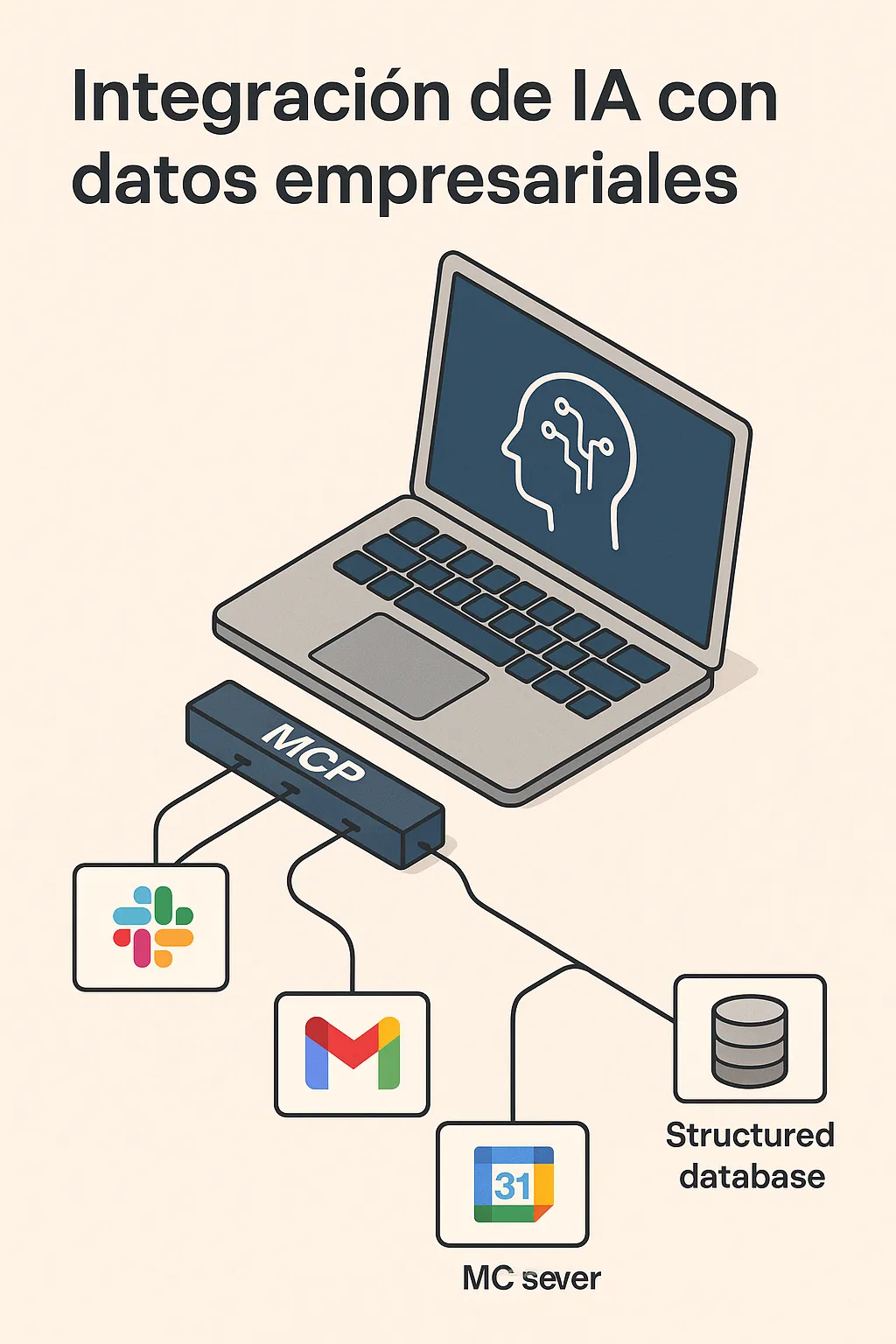What is MCP and Why Should You Care as a Business Leader?
Did you know that 80% of companies fail to unlock AI’s full potential because models don’t understand their business? Language models like ChatGPT are powerful, but they lack something critical: business context. They don’t know your internal policies, products, or customers. That’s where the Model Context Protocol (MCP) comes in—a game-changing open protocol that connects artificial intelligence with your organization’s dynamic knowledge, turning it into a strategic tool.
What is MCP?
MCP is the bridge that links AI with your business. This protocol enables a language model to securely and controllably access:
- Internal documents: PDFs, Notion, Google Docs, and more.
- Structured databases: Real-time information from your systems.
- Internal or external APIs: Seamless integration with business tools.
- Key applications: CRM, ERP, CMS, and other platforms.
All of this comes with granular access control, complete traceability, and real-time updates, ensuring AI always works with accurate and relevant data.
Why Isn’t a Model Like ChatGPT Enough?
General-purpose language models are trained on public data, not your company’s specific knowledge. MCP transforms these models into experts in your business, integrating the unique context of your operations to deliver precise responses and actionable insights.
Benefits of MCP for Your Business
Adopting MCP doesn’t just improve AI accuracy—it drives tangible results:
- Cost reduction: Automate manual processes, saving up to 40% in operational time.
- Operational efficiency: Faster responses and decisions based on up-to-date data.
- Customer experience: Personalized responses that strengthen client relationships.
- Competitive advantage: Turns AI into a strategic ally tailored to your needs.
MCP in Action: Integrations That Transform
MCP + RAG (Retrieval-Augmented Generation)
MCP securely manages access to your information sources, while RAG retrieves relevant data before generating a response.
Example: A customer asks about a return policy. RAG searches your internal documents, and the model responds with accurate, rule-compliant information.
MCP + APIs
MCP translates questions into direct calls to your systems, integrating real-time data.
Example: “What’s the status of order #1234?” The AI queries your ERP via MCP and delivers an instant, precise response.
MCP + Intelligent Agents
With MCP, AI agents don’t operate blindly. They understand your processes, rules, and data sources.
Example: A marketing assistant creates personalized campaign content using your brand’s tone, templates, and customer data from your CRM.
MCP + Human Resources
MCP can also streamline internal processes across departments.
Example: An AI agent analyzes resumes based on your company’s specific requirements, prioritizing candidates according to internal criteria.
Security and Control: MCP’s Priority
Privacy and security are critical in business environments. MCP ensures:
- Defined permissions: Only authorized data is accessible to the model.
- Complete traceability: Audit logs to comply with regulations like GDPR.
- End-to-end encryption: Protection of sensitive data at all times.
- Total control: You decide what information is exposed and how it’s used.
Where to Start?
- Identify key areas: Look for processes that rely on internal knowledge, such as customer support, sales, or HR.
- Map your data sources: Documents, databases, APIs, or internal applications.
- Launch a pilot: Test MCP in a specific use case, like automating customer responses or generating internal reports.
Conclusion
MCP transforms AI into a strategic tool for your business, integrating it with the knowledge you already have. It’s not just about answering questions—it’s about operating with precision, security, and context. AI needs context, and MCP provides it.
Ready to transform your business with AI? Contact us for a personalized demo.
— Digital Motus Team
